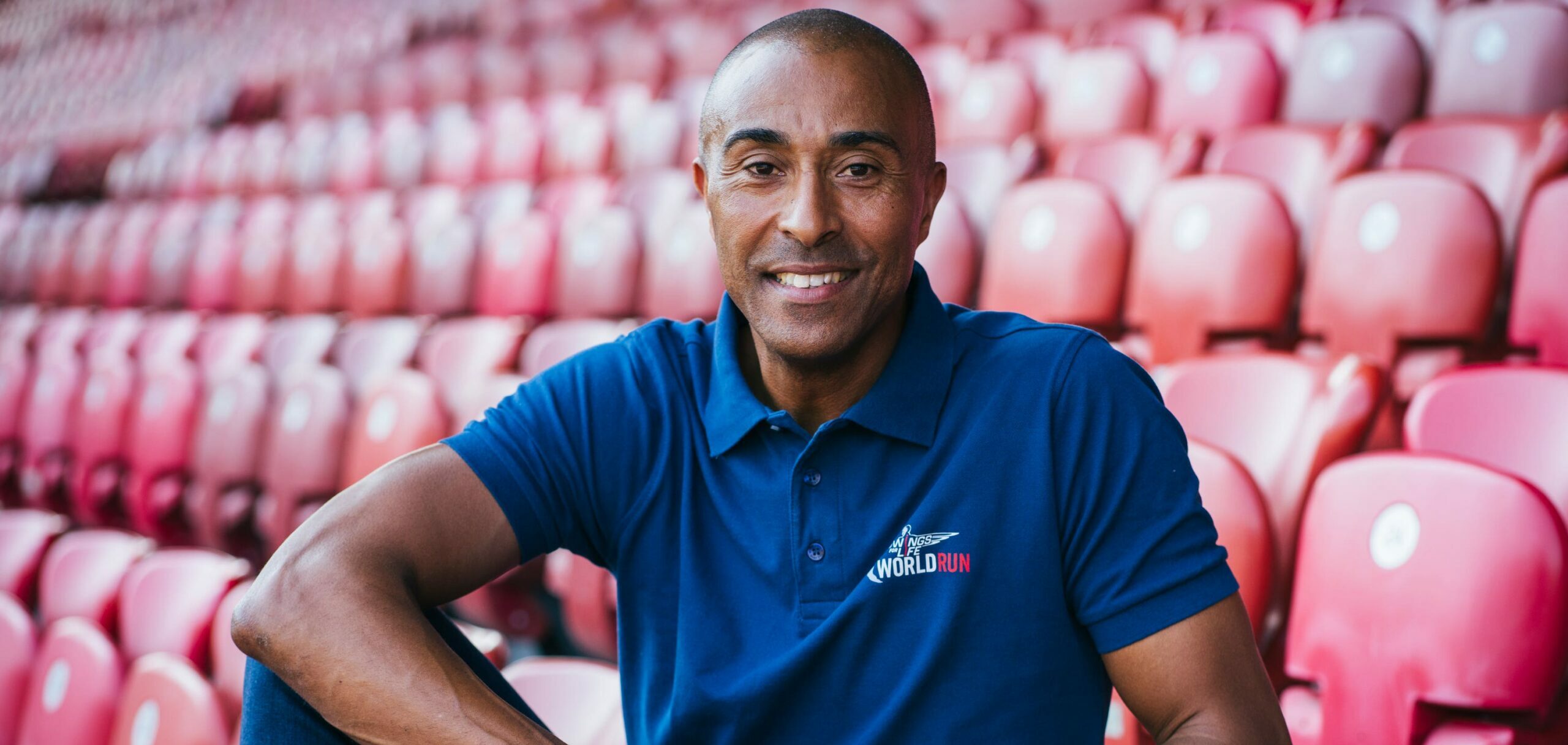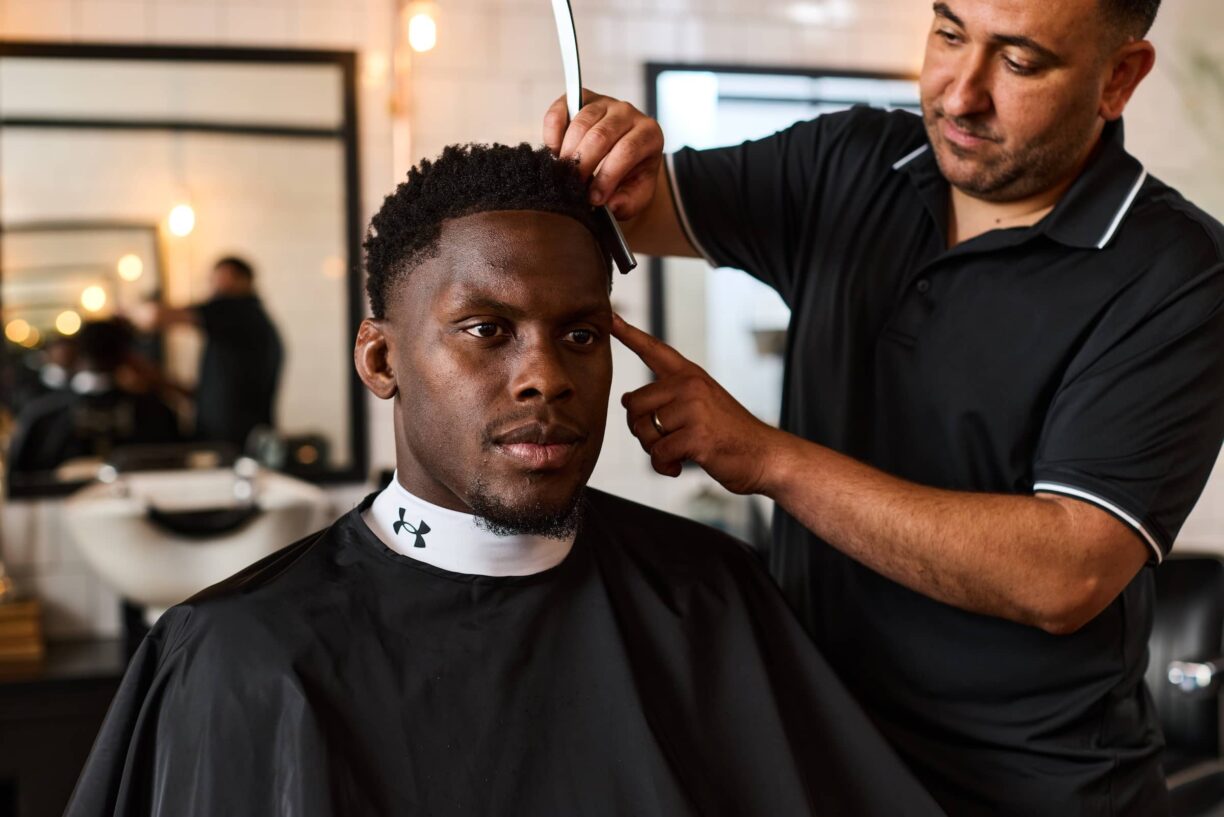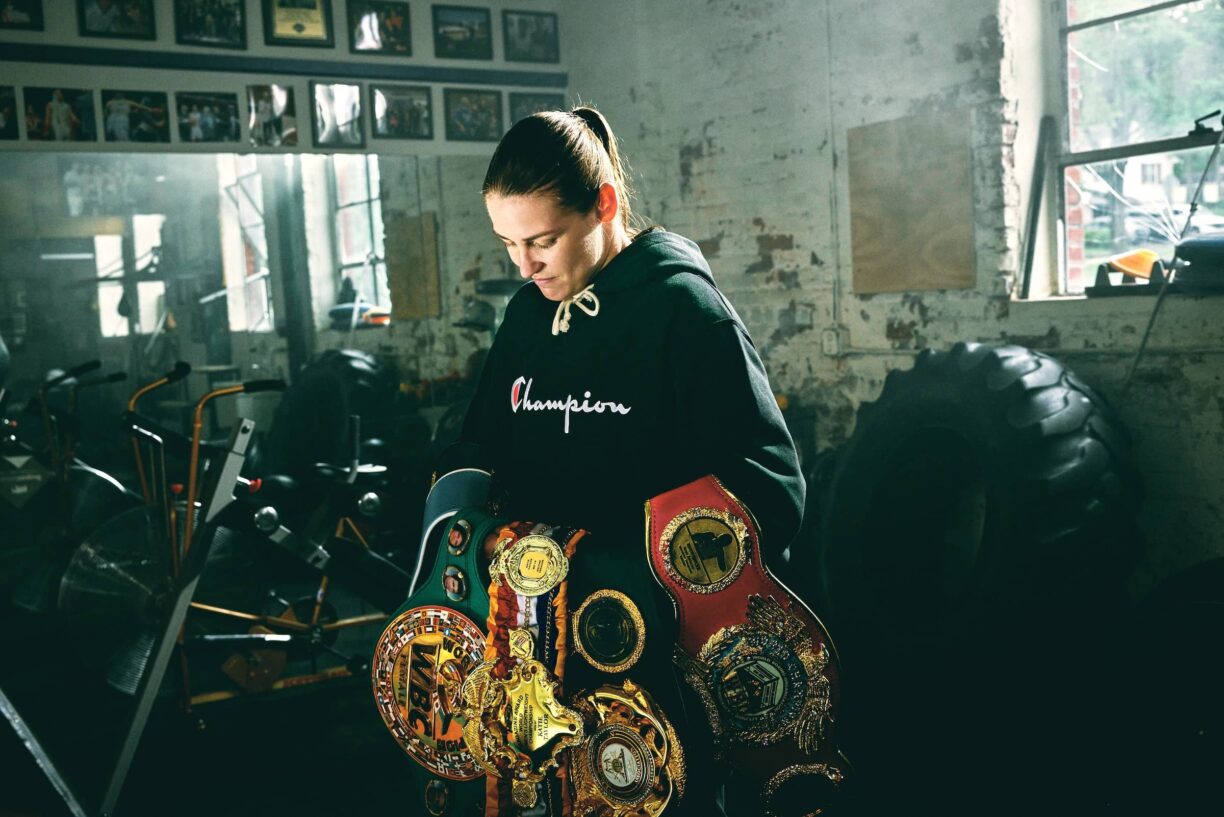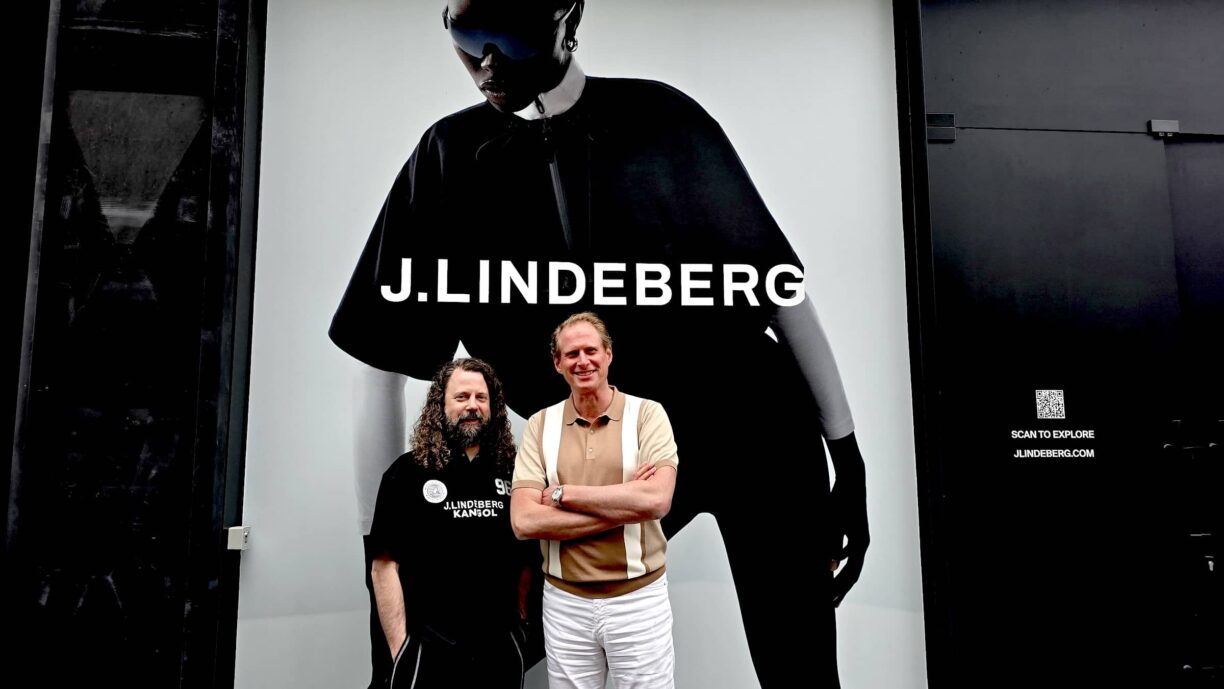Spangly costumes and showing off fancy moves is always a winner – but getting to do Dancing On Ice during the pandemic just made it all the more special for Colin Jackson.
“I’ve absolutely loved doing Dancing On Ice. I’m really fortunate that I’ve had something to focus on, I feel very, very fortunate,” says Jackson, 54.
Since our chat, the former Olympic medallist and World Champion hurdler went on to skate his way to the series final with partner Klabera Komini (radio presenter Sonny Jay ended up taking the crown). And there’s no doubt Jackson had a great time.
“It is so much fun. Really hard work, you can’t play it down – it’s a new skill and nobody’s professional at the beginning – and there’s the added pressure of doing a TV show on top, but it’s just brilliant.
And you’re doing an entertainment show, so you can go to wardrobe and have a great time picking out costumes and outfits!”
The skating costumes are being swapped for running gear now though, as Jackson is once again supporting Wings for Life’s annual fundraiser.
People of all abilities and fitness levels can take part in this year’s event on May 9, where you download the Wings for Life World Run App and then run or move as far as you can until a virtual ‘Catcher Car’ overtakes you. Proceeds support the charity’s mission to cure spinal cord injuries through funding vital research.
Jackson admits spinal cord injury is something many of us still misunderstand – and don’t realise just how common they can be.
“I was shocked when you look at the statistics around the reasons people suffer spinal cord injury,” Jackson recalls of when he first got involved, “car accidents – they’re always right at the top of the list.”
And spinal cord injury is not just a question of paralysis. It can potentially affect everything – from the skin and pelvic floor, bladder and bowel function to movement, organ function and temperature regulation, not to mention the social and psychological impact of adapting to injuries. But research does offer hope for life-changing advancements.
“I don’t think we realise just how much time and effort it takes scientists to research and eradicate spinal cord injury, and the more money we have, the more scientists can work on it,” says Jackson.
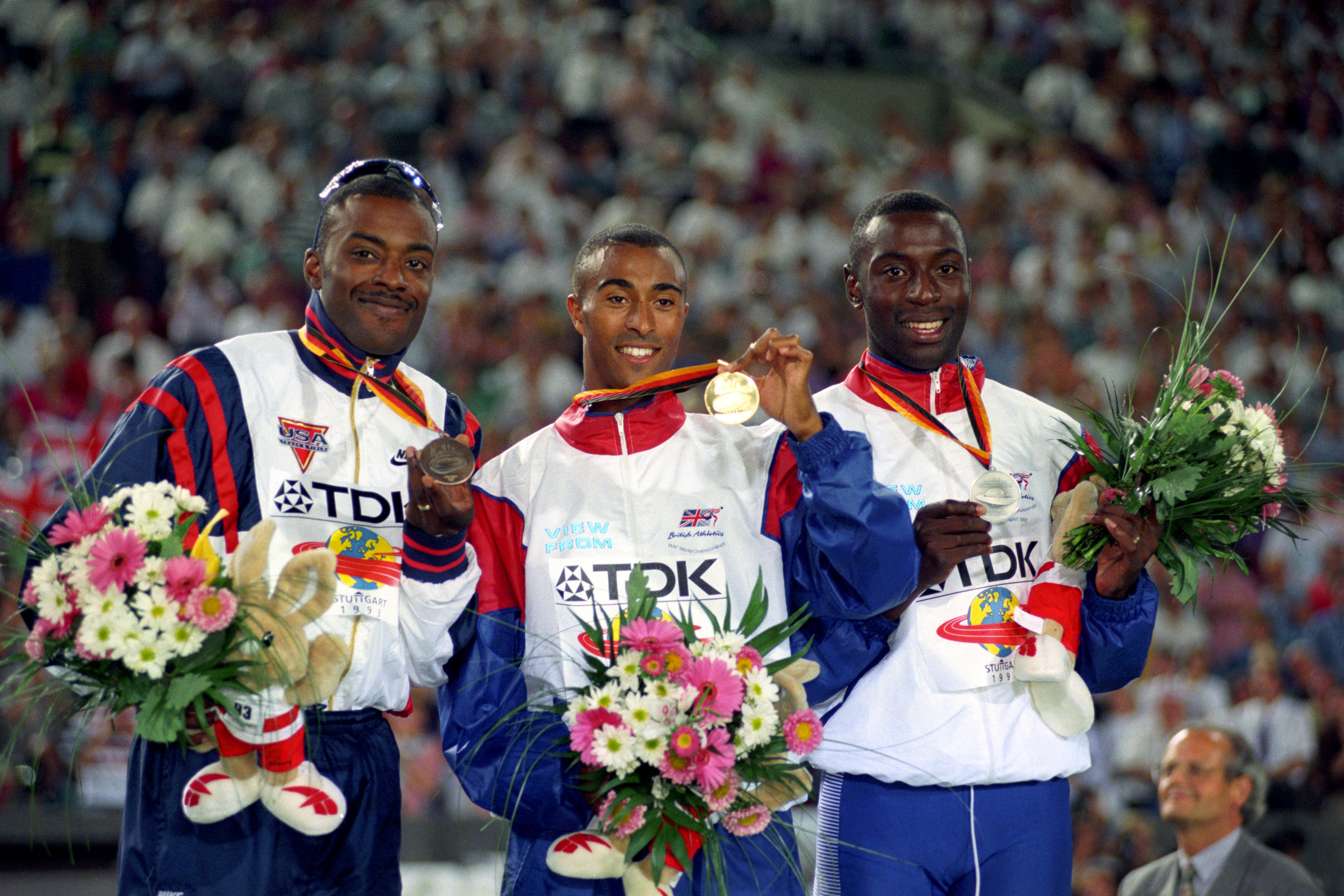
We asked the Cardiff-born athlete about coping with lockdown and his approach to self-care…
How have you found the past year, coping with lockdowns?
“I’m quite odd in that sense, because my life structure is really simple. If I’m not working, then I have a very gentle, easy regime, which is out first thing in the morning for a walk, I hit the gym, I do a yoga or Pilates class, I eat food, and I go to bed.
I don’t make anything too complicated. I try to make it as easy as I possibly can, and that’s allowed me to relax as much as I possibly can.
“That’s always been the case I think, because as a professional athlete, your life is manic – you’re travelling the world, packing bags, going from hotel to hotel, track to track, airport to airport. When you come back home, you just want to do the complete opposite, just calm yourself down.
“During the pandemic, having that very simple routine kept my mind fresh, and I think I had a good take on this being a restart – a real press of that reset button.
And I’m fortunate I don’t have money worries or work issues – if I was 35, had two kids and lived in a one-bedroom apartment, then life would be very different.
But I don’t, so the way my life allows me just to be able – and I realise this is a real luxury – to calm down a bit and concentrate on my general wellbeing.”
Are you a morning person?
“Do you know, I was talking to Klabera about this and she was saying, ‘I can’t believe you get up so early and walk and then go back to bed!’ And I was like, ‘Yeah’.
If I wake up at half five, I’ll be out the house by quarter to six and off I go for a nice 45-minute walk, get back, shower, change, and pop back to bed.
Then when I wake up again at eight, I’m ready to do a bit of a workout. I’m quite happy to get up early and crack on with the day, I love it.”
Are your morning walks about the physical boost or mindfulness, or a bit of both?
“It’s a bit of both. I never dissect the two, they’re very much interlinked. Physical and mental activity and wellbeing go together for me, that’s always been the case.
“When I’m walking, I’m walking quite briskly, and I’m enjoying the environment. I’m not really planning what I’m going to do after I’ve finished, I’m just allowing myself to be free.
There’s just that real sense of freedom at that particular time. I see it as active meditation. I’m walking, I’m walking, I’m walking, but I’m also allowing my brain to just be, and appreciate nature and the environment.”
What else helps you relax?
“Bath salts! If you walk into the bathroom, close the door – put some salts in the water and think about all your senses, you can have a complete indulgence of those senses.
Something that smells nice, then around your body you have the warm water, which is comforting, and then that peacefulness, tranquillity. You don’t have to have candles, but if you like candles, light some.
“Those things are important. There are very few things you can do in this life, where you get true benefit – and your health and fitness is one of the things you can do for yourself, which you – and only you – can do, to get those benefits.
And don’t feel guilty – never feel guilty about looking after yourself. You’ve got to find time for yourself.”
Lots of us do struggle with putting ourselves first, don’t we?
“Absolutely. Sometimes we’ve got to remind ourselves – if you’re not 100% healthy, you can’t make anybody else around you healthy.
You can’t be the strong one if you’re weak yourself, because you’ve worn yourself out. If you really want to make a positive impact around you, you’ve got to look after yourself first.”
Is there a piece of advice, a mantra or something you’ve read, that’s really stuck with you?
“Give me two seconds, I’m going to go and get this book… The Things You Can See Only When You Slow Down [Haemin Sunim].
You can miss a lot when life is whizzing past you, so you’ve got to realise the things you can see only when you slow down – that’s really, really important.
“In my working life, it’s quite manic in normal circumstances, so this is one of the things I have really noticed – when you slow down, you actually see and can appreciate things far more.”
Colin Jackson is an ambassador for Wings for Life. To register for the virtual Wings for Life World Run on May 9, visit wingsforlifeworldrun.com.

